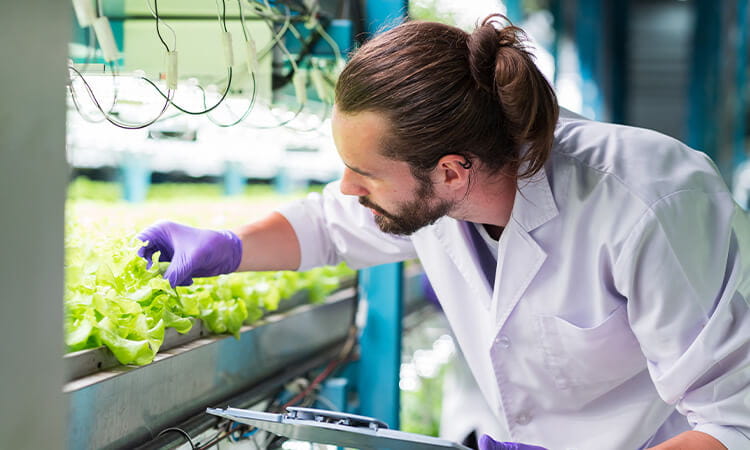What does a food technologist do?
Food glorious food – it’s essential to our survival, so what role does a food technologist play? Drawing on biology, chemistry, nutrition science and chemical engineering, a food technologist (also known as a food scientist, chemist or food and wine scientist) will investigate the chemical, microbiological and physical nature of food. Food technology jobs help advance our knowledge in developing, preserving, distributing and storing food items. They also give us insight into the effects of various food components on human nutrition and health.Is a career as a food technologist right for me?
If you enjoy investigating and getting to the bottom of an issue, you might like this job. Other skills and attributes beneficial for this role include:
- strong problem-solving skills
- an analytical and inquisitive mind
- a fascination with science
- an interest in food production and preparation
- strong attention to detail
- an ability to follow instruction
- good communication skills.
How to become a food technologist
Every journey to study is individual and there are several paths to reaching your food technology career goals. At UniSQ, we offer the following degrees in the area of food science:
Average salary per week
$1314
Future demand
Moderate
Industries
Related careers
Source: yourcareer.gov.au
© Commonwealth of Australia
Last updated May 2024.

Food technologist FAQs
What does a food scientist do on a day-to-day basis?
A food scientist (also known as a food technologist) conducts evaluations on food products to assess their flavour, colour, taste, texture, and nutritional content. They can also provide guidance on the preservation, processing, packaging, storage, and distribution of food items. Lastly, a food scientist can develop and implement quality control procedures to establish safety standards for food production.
How much do food technologists earn?
The salary of food technologists can vary widely depending on their level of education, years of experience, and the sector in which they work. Refer to the salary information on this page for further details.
Where do food technologists work?
Food technologists (also known as food scientists) typically work in the food production industry, including manufacturing, professional, scientific and technical services, and public administration and safety. Alternatively, they might work in government and university research labs that focus on food safety and public health. Sectors that specialise in flavour development, packaging technology, and food preservation techniques also require food technologists.
Are food technologists in demand?
Food technologists are expected to remain in stable demand due to their critical role across several key sectors. In manufacturing, they are pivotal in enhancing food safety and sustainability as global food needs increase. The professional, scientific, and technical services sectors rely on their expertise to develop innovative food products and improve nutritional quality. Additionally, in public administration and safety, food technologists help formulate policies that ensure food safety and public health compliance.
Sign up for the latest information
UniSQ is collecting the personal information on this form for support for students and prospective students and for marketing purposes. Further information concerning privacy is available.